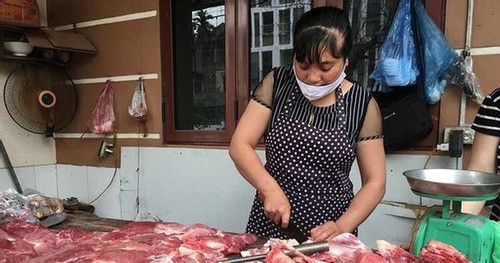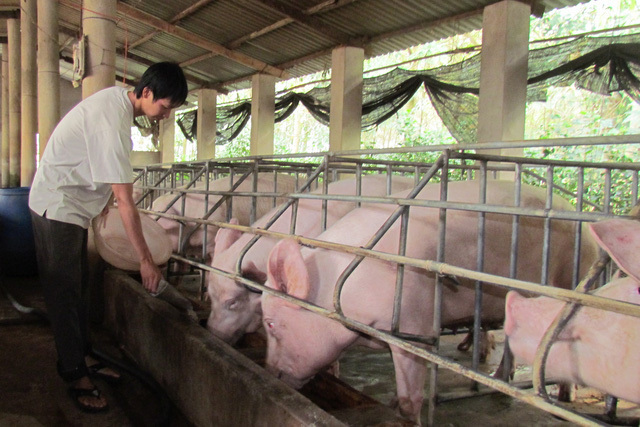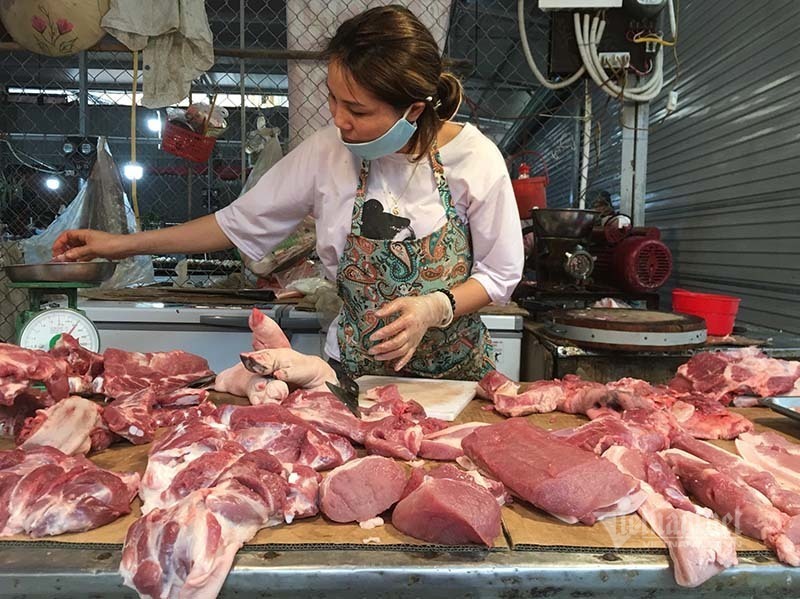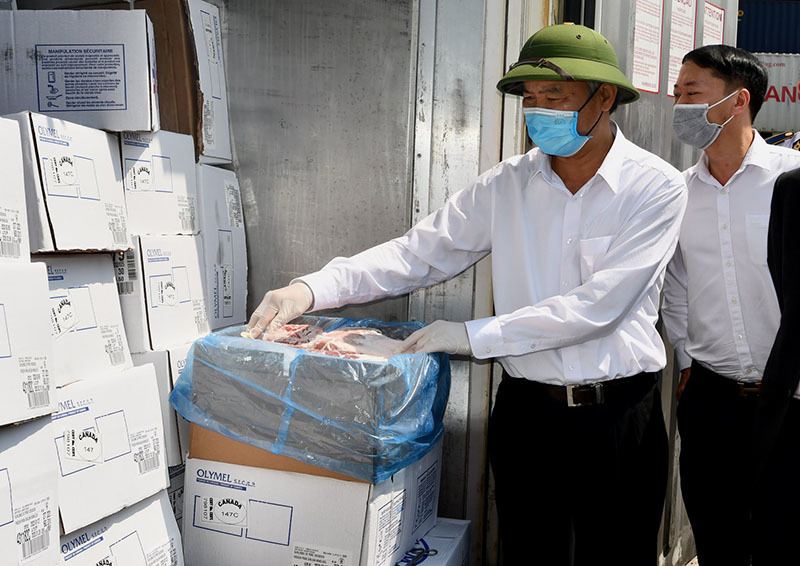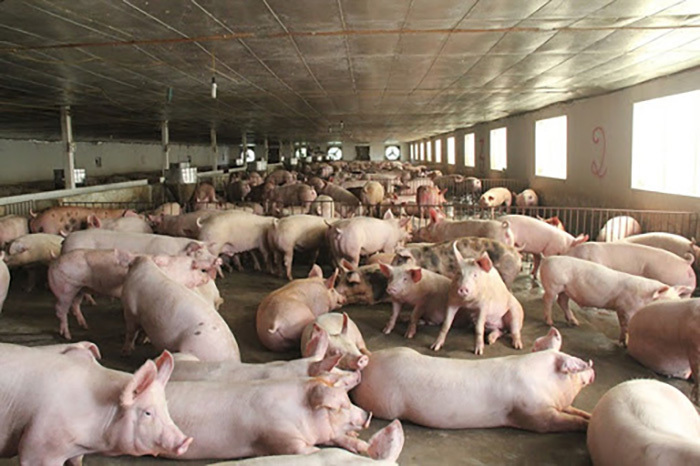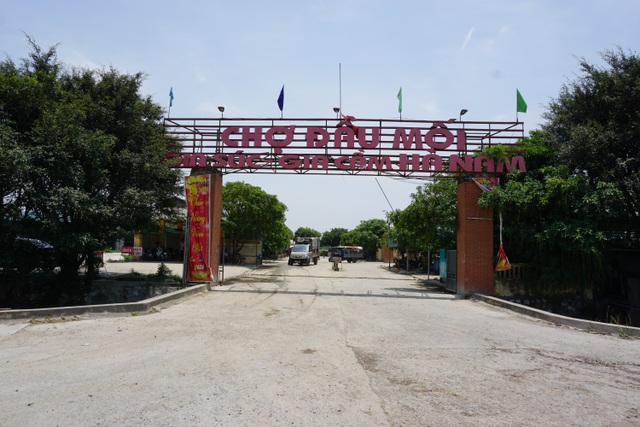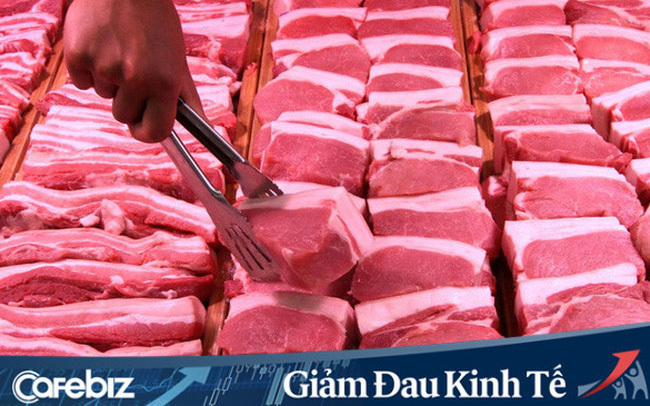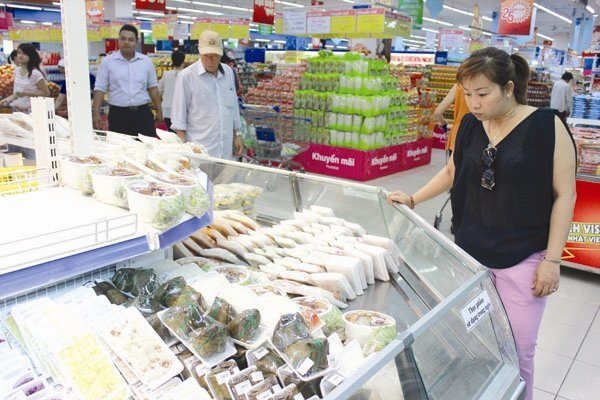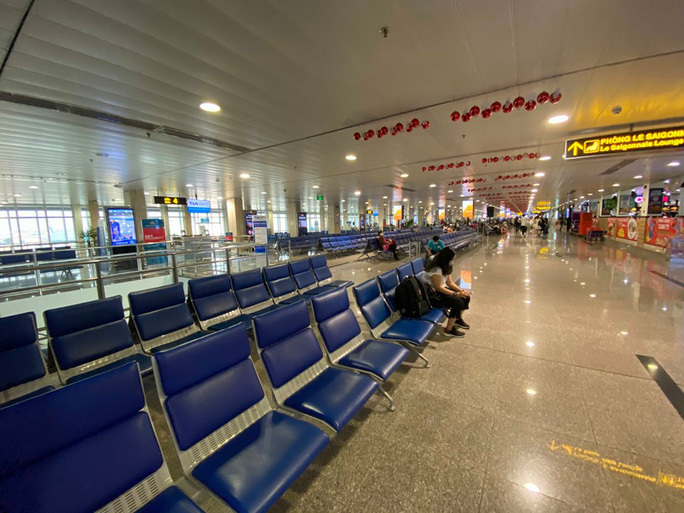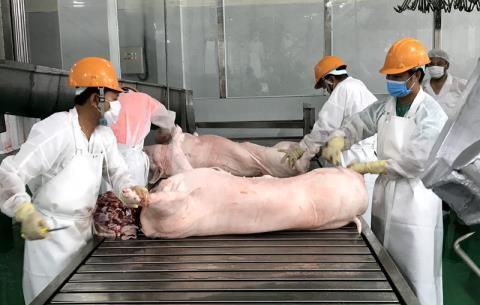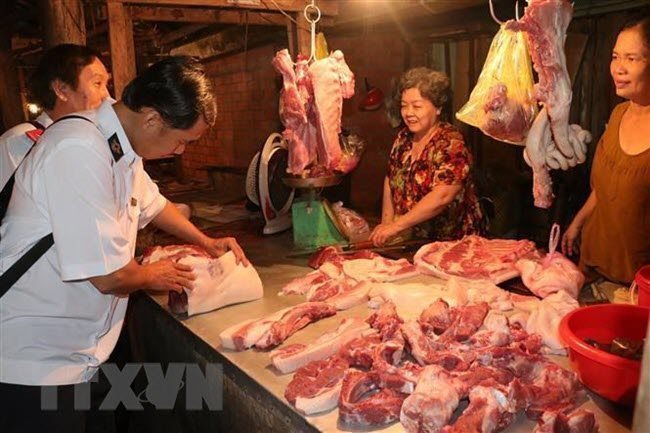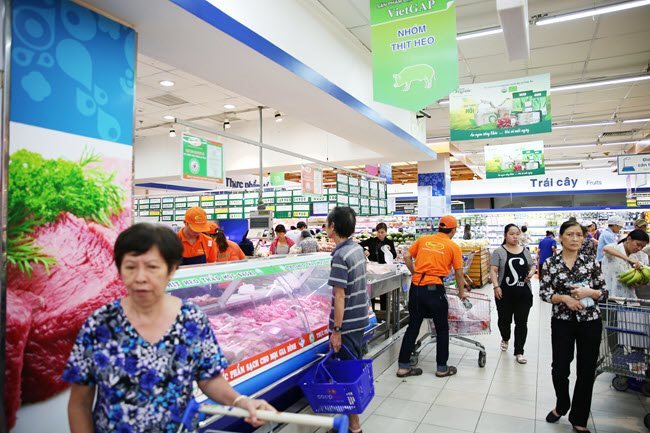- © Copyright of Vietnamnet Global.
- Tel: 024 3772 7988 Fax: (024) 37722734
- Email: [email protected]
pork price
Update news pork price
Measures to stabilize pork prices to be immediately implemented
The Government Office yesterday released Document No.4679/VPCP-KTTH about the direction of Deputy Prime Minister Le Minh Khai on stabilizing the prices of pork and animal feed, which have increased significantly lately.
Despite imports from Thailand, pork prices are still going up before Tet
More than 500,000 pigs have been imported from Thailand since June 2020. However, the pork price has been rising to VND78,000-85,000 per kilogram in the lead-up to the Tet holiday.
Pork price hits 20-year record high in 2020
Pork became very expensive in 2020 as Vietnam had to import pork to satisfy domestic demand.
Pork prices drop after country flooded with imports
Vietnam spent VND5 trillion ($214.78 million) to import pork in the first nine months of the year, leading to a drop in prices.
Pork price high, livestock companies pocket high profits
The pork production cost is just VND50,000 per kilogram for closed husbandry chains, while the live pork price in the market is VND80,000.
100,000 pigs imported from Thailand within two months, pork price falls
The rising number of herd stock, plus pork imports, have helped lower the domestic pork price.
High pork prices in Vietnam blamed on suppliers who control the market
 While government officials attribute the high pork price to the low supply caused by the African swine fever (ASF), experts say they can see signs of oligopoly.
While government officials attribute the high pork price to the low supply caused by the African swine fever (ASF), experts say they can see signs of oligopoly.
Imported pigs from Thailand expected to reduce Vietnam’s pork price
The price of live hog in the Vietnamese market decreased recently after the Ministry of Agriculture and Rural Development (MARD) allowed imports of pigs from Thailand.
Pig market experiences slow sales as prices increase
 Even though pork prices have increased, farmers are having a hard time finding customers to buy pigs.
Even though pork prices have increased, farmers are having a hard time finding customers to buy pigs.
Petrol price down, but goods prices remain unchanged
 The petrol price has decreased by VND5,000 per liter after seven adjustments, but the prices of other goods remain unchanged.
The petrol price has decreased by VND5,000 per liter after seven adjustments, but the prices of other goods remain unchanged.
Animal feed supply sparks concern about pork shortage
 CP Vietnam, the largest animal husbandry company, says that animal feed supply could run out by the end of May.
CP Vietnam, the largest animal husbandry company, says that animal feed supply could run out by the end of May.
Vietnam imports pork in large quantities
 The Ministry of Agriculture and Rural Development (MARD) has done what it promised – imported pork in large quantities from the US, Canada, Brazil and Russia to stabilize the pork market.
The Ministry of Agriculture and Rural Development (MARD) has done what it promised – imported pork in large quantities from the US, Canada, Brazil and Russia to stabilize the pork market.
Money oversupply increases core inflation
 Keeping the inflation rate at 4 percent in 2020 will be a challenging task, not only because of the pork price escalation, but also money excess.
Keeping the inflation rate at 4 percent in 2020 will be a challenging task, not only because of the pork price escalation, but also money excess.
Two scenarios for Vietnam’s economic growth
 If the nCoV epidemic lasts a long time, the GDP is expected to decrease.
If the nCoV epidemic lasts a long time, the GDP is expected to decrease.
Vietnam to import 100,000 tons of pork in Q1
 Pork imports are needed to ensure stable supply and curb price escalation.
Pork imports are needed to ensure stable supply and curb price escalation.
The challenges for Vietnam’s economy in 2020
 Many problems arose in the last months of 2019, which sparked the worry that 2020 would be a tough year for Vietnam’s economy.
Many problems arose in the last months of 2019, which sparked the worry that 2020 would be a tough year for Vietnam’s economy.
Inflation in 2020: many unknowns
 The average inflation rate in 2019 was low at 2.79 percent. However, the inflation rate in December 2019 reached 5.23 percent compared with December 2018, and this is worrying.
The average inflation rate in 2019 was low at 2.79 percent. However, the inflation rate in December 2019 reached 5.23 percent compared with December 2018, and this is worrying.
American, Vietnamese experts develop African Swine Fever vaccine
 A vaccine against African Swine Fever (ASF) is being developed in Vietnam.
A vaccine against African Swine Fever (ASF) is being developed in Vietnam.
Agriculture ministry criticized for pork price upsurge
 The Ministry of Agriculture and Rural Development’s leadership should evaluate and learn from its shortcomings and be held accountable for delays in reporting the potential shortage of pork and the pork price hike to the Government.
The Ministry of Agriculture and Rural Development’s leadership should evaluate and learn from its shortcomings and be held accountable for delays in reporting the potential shortage of pork and the pork price hike to the Government.
Pork prices vs. monetary policy
 Can the prices of pork destabilize the monetary policy formulated by the central bank in Vietnam?
Can the prices of pork destabilize the monetary policy formulated by the central bank in Vietnam?
